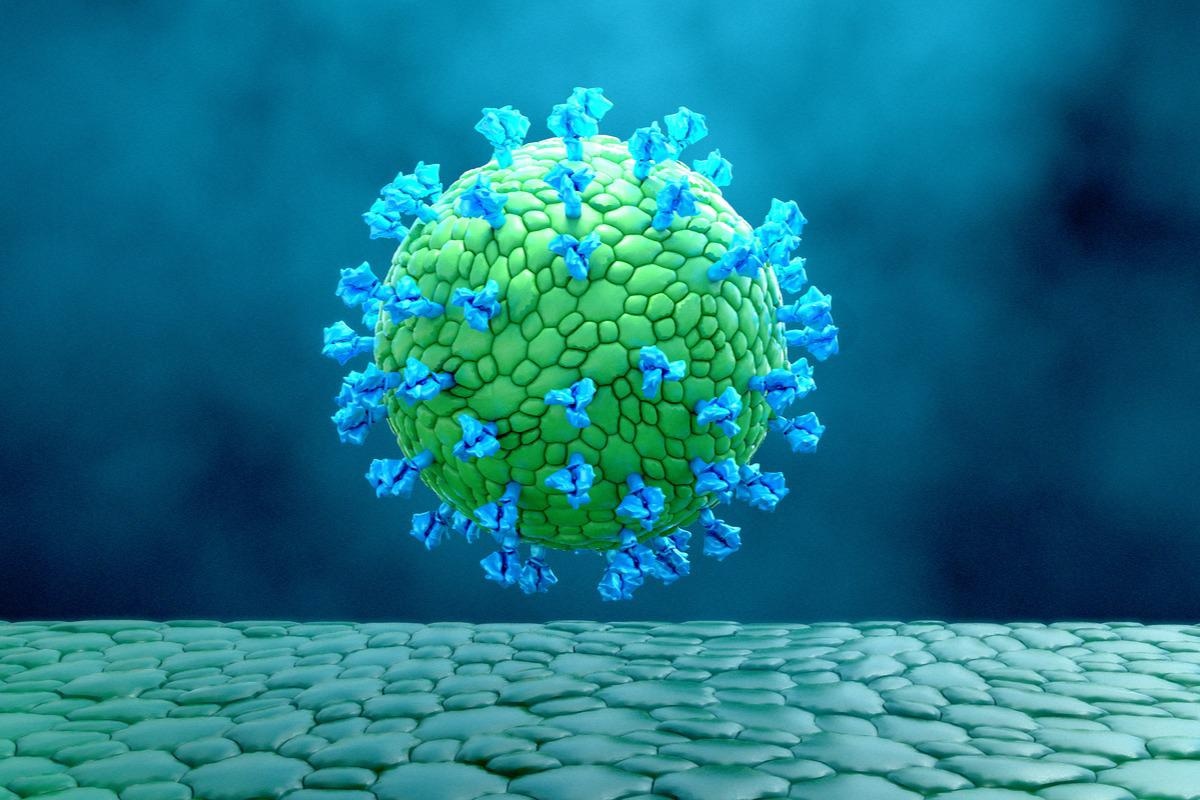Coronaviruses (CoVs) are a large group of viruses in the Coronaviridae family that causes a variety of diseases. In the early twenty-first century, previously undiscovered, lethal coronaviruses spread at an unprecedented rate. Humans, birds, livestock, mice, bats, and various other animals are all infected with CoVs, which affect their gastrointestinal, respiratory, hepatic, and central nervous systems.
 Study: Plant-derived VLP: a worthy platform to produce vaccine against SARS-CoV-2. Image Credit: Design_Cells/Shutterstock
Study: Plant-derived VLP: a worthy platform to produce vaccine against SARS-CoV-2. Image Credit: Design_Cells/Shutterstock
Severe acute respiratory syndrome-associated coronavirus (SARS-CoV) first appeared as a new human infection in South China in November 2002 and was eradicated in July 2003. It infected 8096 people and killed 774 of them, with a 9.6 % mortality rate. Since September 2012, Middle East respiratory syndrome-related coronavirus (MERS-CoV), another highly pathogenic CoV that first emerged in Saudi Arabia, has caused a total of 2494 laboratory-confirmed cases of infection and 858 deaths in 27 countries (mortality rate, 34.4 %).
Severe acute respiratory syndrome coronavirus 2 (SARS-CoV-2) is a single-stranded, enveloped, positive-sense linear RNA betacoronavirus with a genomic size of 26 to 32 kb (the largest viral RNA genome known). Structure proteins (e.g., spike glycoprotein [S]), non-structural proteins (e.g., 3-chymotrypsin-like protease, papain-like protease, helicase, and RNA-dependent RNA polymerase), and accessory proteins are all encoded by the SARS-CoV-2 genome, just as SARS and MERS. These five proteins have been identified as promising targets for developing SARS and MERS vaccines and other antiviral medicines.
It is not surprising, then, that the S protein is the most appealing target protein included in the 12 vaccines that have been approved for use in at least one region. A lipid nanoparticle-encapsulated mRNA vaccine and a recombinant adenovirus-vectored vaccine expressing the S protein are among them. Subunit vaccines containing individual SARS-CoV-2 antigens are also being developed and tested in clinical trials, as are virus-like particle (VLP)-based vaccines presenting antigens in multi-arrays on their surfaces.
In a review published in Biotechnology Letters, the authors discuss plant-derived VLP-based vaccines.
The study
VLPs are self-assembled viral antigen structures that resemble the three-dimensional morphological structure of virions but lack viral DNA. VLPs, like natural virions, can generate powerful cellular and humoral immune responses without adjuvant due to their similarities in size, shape, and the repeated array of immunogenic epitopes exhibited on the VLP surface. VLPs interface with and are taken up by dendritic cells (DCs), which subsequently process and present the thousands of epitopes contained in a single VLP on MHC class I/II molecules, triggering strong T-cell mediated immune responses.
In the absence of adjuvants, the high-density presentation of epitopes in repeated arrays on the surface of VLPs can elicit high titer and long-lasting B-cell immune responses. VLPs are also a safer alternative to live, attenuated, or inactivated vaccinations since they lack viral nucleic acid and are non-infectious. Furthermore, antigens displayed on the surface of a VLP in their original conformation are more stable than antigens provided in subunit form, resulting in smaller and less frequent antigen doses required to elicit a protective immune response.
VLPs have become one of the most successful recombinant vaccination platforms due to their inherent properties. Regulatory agencies have approved commercially accessible VLP-based vaccinations against the human papillomavirus (HPV), which is composed of the HPV main capsid protein L1, and the hepatitis B virus (HBV), which is made of the hepatitis B surface antigen (HBsAg).
In humans, these vaccines are very efficacious and safe, with the ability to induce long-lasting humoral immune responses. Due to the generation of highly potent antibodies and human safety profiles, these vaccines can produce long-lasting immune responses. These achievements have sparked the development of VLP-based vaccinations for a wide range of disorders. However, the high costs of the yeast and insect cell expression technologies used to make the HPV and HBV vaccines prevent widespread use in developing nations.
Following the success of its influenza virus VLPs in plants, Medicago has created a SARS-CoV-2 VLP-based vaccine in plants using its platform and learned knowledge and is currently at the forefront of SARS-CoV-2 vaccine development. Agrobacterium-mediated transformation was used to insert the SARS-CoV-2 spike gene sequence into N. benthamiana seedlings.
SARS-CoV-2 VLPs were constructed once the appropriate protein was expressed, and they were quite comparable in size and structure to native SARS-CoV-2 virions. This VLP-based SARS-CoV-2 vaccine candidate has demonstrated to be effective in phase I human clinical studies and is currently undertaking phase 2 and 3 clinical trials, with a production rate of 10 million doses per month expected.
Implications
VLPs have been demonstrated to have several advantages over traditional and recombinant subunit vaccinations, including improved immunogenicity and stability compared to attenuated and inactivated vaccines and greater safety compared to subunit vaccines. Additional advantages of VLPs when expressed in plant transient expression systems include proper eukaryotic modification and assembly, high scalability for high yields, lower cost for improved product accessibility in developing countries, increased safety due to the lack of contaminating human pathogens, and the production speed required to control pandemics like SARS-CoV-2.
Several pharmaceutical companies have specialized in the production of plant medicines and vaccines, and procedures to collect VLPs from plants have been created that are efficient, scalable, cost-effective, and cGMP compliant. Although plant-expressed VLPs must still overcome the regulatory hurdle of FDA approval, the significant progress made by plant-produced influenza and SARS-CoV-2 VLP-based vaccine candidates currently in Phase I, II, and III clinical trials suggests that registration of these products, and thus acceptance of other plant-produced therapeutics and vaccines, is within reach.